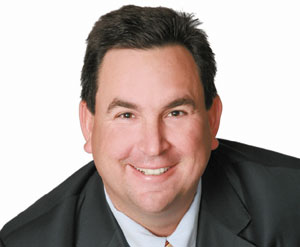The end of the year is a good time to review your personal
finances. What are your financial, business or life priorities for
2010? Try to specify the goals you want to accomplish.
The end of the year is a good time to review your personal finances. What are your financial, business or life priorities for 2010? Try to specify the goals you want to accomplish. Think about the consistent investing, saving or budgeting methods you could use to realize them. Also, consider these year-end moves.
Think about adjusting or timing your income and tax deductions. If you earn a lot of money and have the option of postponing a portion of the taxable income you will make in 2009 until 2010, this decision can bring you some tax savings. You might also consider accelerating payment of deductible expenses if you are close to the line on itemized deductions – another way to potentially save some bucks.
Max out your IRA contribution at the start of 2010. If you can do it, do it early. The sooner you make your contribution, the more interest those assets may earn. For 2010, the contribution limits are unchanged for both traditional and Roth IRAs: $5,000 if you are age 49 and below, $6,000 if you are age 50 and above. Remember that you can still make an IRA contribution for the 2009 tax year through April 15, 2010.
While we’re talking about maxing things out, don’t forget your 401(k), 403(b) or Thrift Savings Plan if you are still working. You can contribute up to $16,500 to these plans in 2010, with a $5,500 catch-up contribution also allowed if you are age 50 or older.
Consider a Roth IRA conversion for 2010. Next year, anyone may convert a Roth IRA. The $100,000 modified adjusted gross income (MAGI) ceiling that often prevented that move will be gone – forever. The MAGI phase-out limits for contributing to Roth IRAs will be $167,000 for joint filers and $105,000 for single filers in 2010, but if your MAGI will exceed those limits, you may still contribute to a traditional IRA in 2010 and immediately roll it over to a Roth.
More good news: if you do a Roth conversion during 2010, you can choose to divide the taxes on the conversion between your 2011 and 2012 federal returns. This nice opportunity won’t be available if you make a Roth conversion in 2011.
Another detail to remember: in 2009, withdrawals from a traditional IRA may be used to fund a Roth IRA. (This relates to the 2009 suspension of Required Minimum Distributions.)
So even if you don’t want to convert a traditional IRA to a Roth account, you may still fund a Roth IRA using a withdrawal from a traditional IRA through the end of this year (provided your 2009 MAGI is $100,000 or less).
Be sure to consult a tax or financial professional before you arrange a Roth conversion or make any IRA moves.
You will want see how it may affect your overall financial picture. The tax consequences of a Roth conversion can get sticky if you own multiple traditional IRAs.
Should you take a distribution from your IRA this year? It’s an interesting question.
Barring an act of Congress, RMDs will be back for 2010. If you think taxes will be higher next year, you could opt to take a distribution before the end of this year to lower your IRA balance as of the end of 2009.
As RMDs are based on an IRA’s value as of Dec. 31 of the previous year, taking a distribution in 2009 will reduce a 2010 RMD.
If you are age 70 or older, you may want to make an IRA charitable rollover. It will lower your 2009 IRA balance and your 2010 RMD. The sun is setting on this tax break: the IRA charitable rollover option is currently set to expire at the end of 2009.
You may wish to make a charitable gift before New Year’s Day. If you make a charitable contribution this year, you can claim the deduction on your 2009 return.
You could make December the “13th month.” Can you make a January mortgage payment in December, or make a lump sum payment on your mortgage balance? If you have a fixed-rate mortgage, a lump sum payment can reduce the home loan amount and the total interest paid on the loan by that much more. In a sense, paying down a debt is almost like getting a risk-free return.
Are you marrying next year, or do you know someone who is? The top of 2010 is a good time to review (and possibly change) beneficiaries to your 401(k) or 403(b) account, your IRA, your insurance policy and other assets.
You may want to change beneficiaries in your will. It is also wise to take a look at your insurance coverage. If your last name is changing, you will need a new Social Security card. Lastly, assess your debts and the merits of your existing financial plans.
Are you returning from active duty? If so, go ahead and check the status of your credit, and the state of any tax and legal proceedings that might have been preempted by your orders. Review the status of your employee health insurance, and revoke any power of attorney you may have granted to another person.
Don’t delay – get it done. Talk with a qualified financial or tax professional today, so you can focus on being healthy and wealthy in the New Year.
Brad Ledwith is a certified financial planner and runs his own wealth management firm in Morgan Hill. He is a registered representative with and offers securities through LPL Financial, member NASD/SPC. CA Lic 0C69547. If you have financial questions you would like to have answered in this column in the future, e-mail br**@**************al.com.










